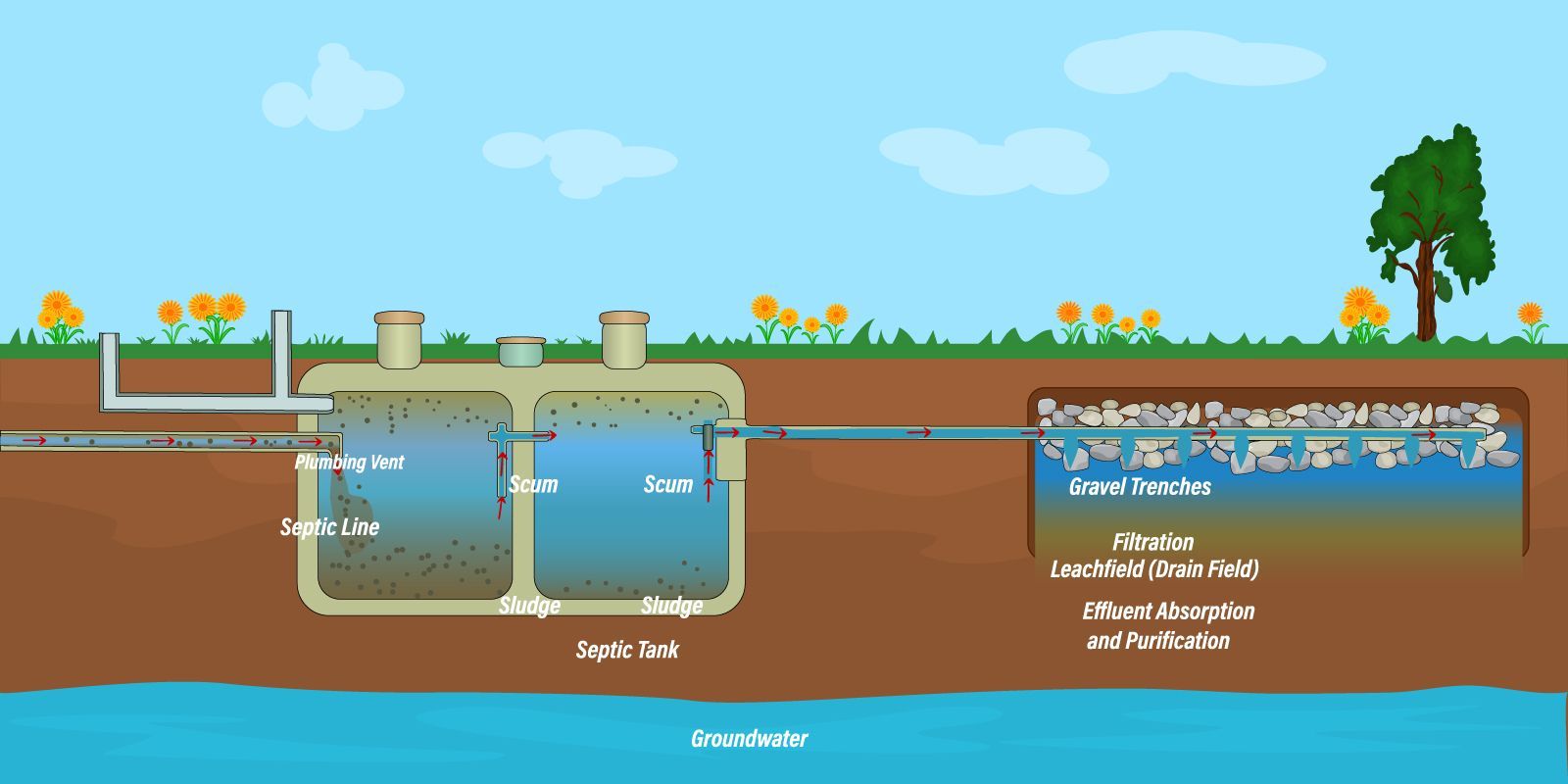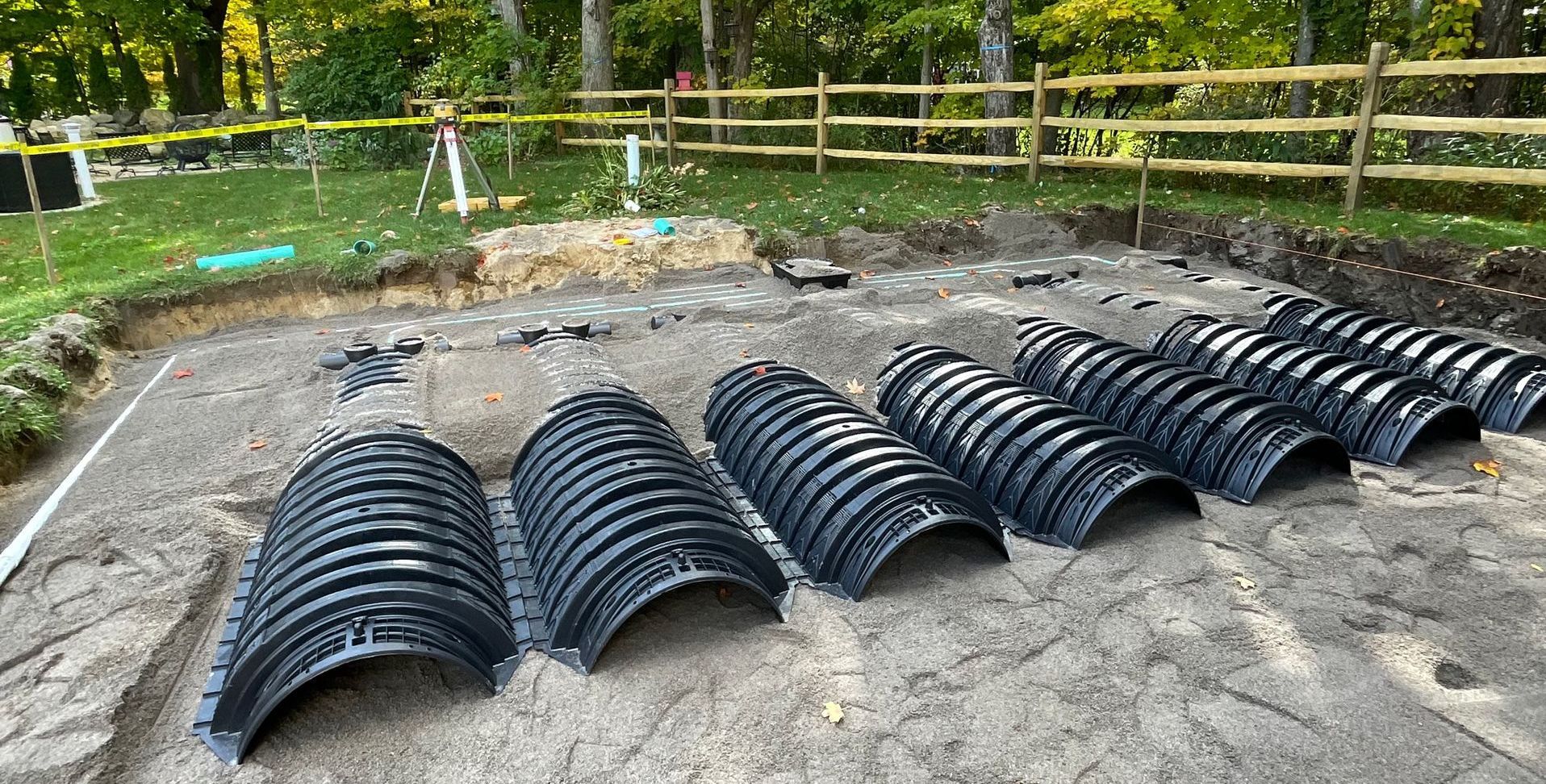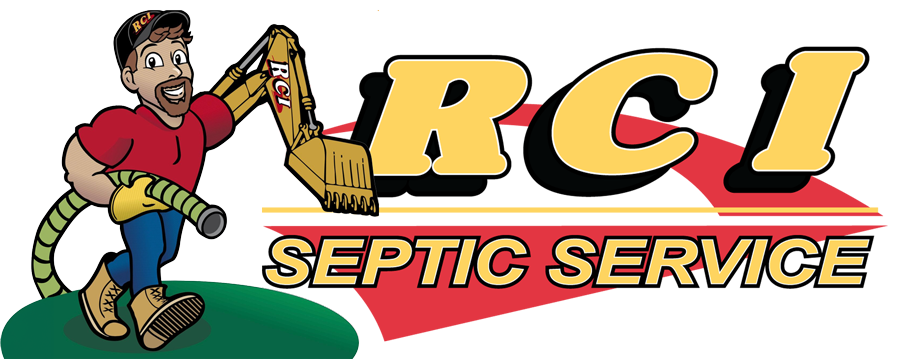Drain Field Failure Signs: When to Call a Professional
Drain Field Replacement
Picture this: a section of your yard, a crucial part of your home’s waste management system, starts behaving like a petulant child, refusing to do its job. Yes, we're talking about your drain field needing replacement. Remember, the efficiency of your entire waste system hinges on those hidden pipes underground.
The Consequences of a Saturated Leach Field
A saturated leach field isn’t just a small hiccup; it’s like having a ticking time bomb under your lawn. Ignoring it could have dire consequences including sewage backing up into your home. Water and septage escapes through the easiest route and if your drain field is not working and water cannot flow through it may back up into your home. The environment can become a victim too, as untreated waste can seep into and contaminate surrounding soil.
What are the Different Elements of a Septic System?
Your septic system isn’t a one-trick pony; it's more like a band, with each member playing a vital role. From the tank that collects and begins the breakdown process to the leach fields that handle the finale, every part ensures your home stays clean and green.

What Causes Water to Pool on a Leach Field?
If you notice your leach field transforming into a pool, it's not preparing for the summer. It’s signaling a blockage or overloading issue. Such standing water is a telltale sign that your system is overwhelmed, either by excessive water use or a failure within.
What are the different types of septic field lines?
Not all heroes wear capes; some are just underground, doing their job. From stone and pipe, enviro, infiltrator, etc., each type if system has its unique way of managing effluent, ensuring it's properly dispersed and naturally treated.
Taking Care Of Your Septic System Treatment Center
Think of your septic system as a pet that never whines for attention but definitely needs it. Regular clean outs, avoiding harsh chemicals, and mindful water usage can go a long way in keeping your system healthy and functional.
What Are The Common Drain Field Issues and Solutions?
From trees that get a bit too cozy with your pipes to the mystery of disappearing toilet paper, various culprits can disrupt your system. But fear not, most problems have solutions, whether it's a simple fix or a call to the pros.
Here's a closer look at some common problems:
- Overgrown Tree Roots: Trees searching for moisture can invade and damage your drain field pipes.
- Compacted Soil: Heavy machinery or vehicles driving over the drain field can compact the soil and crush pipes, reducing its ability to filter wastewater.
- Excessive Water Use: Overloading the system with more water than it can handle can lead to backups and flooding.
- Poor Maintenance: Lack of regular pumping and visual inspection can lead to system failure.
- Clogged Pipes: Non-biodegradable materials or solids can clog the system, preventing proper drainage.
- Chemicals and Antibiotics: Harsh chemicals and medications can kill the beneficial bacteria in your septic system.
- Aging System: Over time, systems wear out and may not function as efficiently.

Can you repair a septic drain field?
Repairing a drain field is like fixing a delicate piece of machinery—sometimes possible, sometimes not. It often depends on the extent of the damage and the system's age. Consulting with a professional can help you navigate these murky waters.
Clogged piping
Clogged pipes are the silent disruptors of peace in your septic system. They're like the cholesterol in your home's arteries, blocking the flow and causing havoc. A good clean-out or repair can get things moving again.
Overflowing Tank
An overflowing tank is the system's way of saying, "Help, I’m full!" It's a clear sign that either maintenance has been overlooked or it's time for a pump-out. It's like your system is asking for a spa day, and it's best not to ignore it.
How to Spot if Your Drain-field is Failing
Keep an eye out for the red flags: slow drains, gurgling pipes, and an unwelcome smell. These symptoms are your system’s cry for help. Catching these signs early can mean the difference between a simple fix and a costly replacement.
Frequently Asked Questions About Drain Fields
-
Can a leach field be unclogged?
Yes, a leach field can often be unclogged through methods like hydro jetting or by introducing bacteria and enzymes designed to break down blockages. However, the effectiveness depends on the severity and cause of the clog.
-
Is a drain field the same as a septic?
No, a drain field is a component of a septic system. It's where the liquid effluent from the septic tank is absorbed and filtered back into the soil, whereas the septic system includes the tank, d-box, baffles and the drain field.
-
What is the best pipe for a drain field?
 Button
ButtonPVC (Polyvinyl Chloride) pipes with perforations are commonly considered the best for drain fields due to their durability, resistance to corrosion, and effectiveness in wastewater dispersion.
-
How do you know if your drainfield is bad?
 Button
ButtonSigns include sewage odors outdoors, standing water or soggy soil in the drain field area, slow draining toilets and drains, and unusually lush grass over the drain field.
-
What is the life expectancy of a septic drainfield?
 Button
ButtonThe life expectancy of a septic drainfield can vary widely, but it typically ranges from 15 to 30 years, depending on factors like usage, maintenance, soil conditions, and proper installation.
-
How do I know if my leach field is failing?
 Button
ButtonIndicators of a failing leach field include sewage smells in the yard, wet spots or standing water above the leach field, slow flushing toilets, and backups in plumbing fixtures.
-
How do you revive a septic field?
 Button
ButtonReviving a septic field may involve pumping the tank, reducing water usage, repairing or replacing damaged pipes, aerating the soil, or adding soil fracturing to improve absorption. In severe cases, a new field may be needed.
-
What happens when a septic field fails?
 Button
ButtonWhen a septic field fails, untreated sewage can surface on your property, leading to health hazards, environmental contamination, and the need for costly repairs or replacement.
-
Why do septic drain fields fail?
 Button
ButtonCommon reasons include clogging from solids escaping the tank, compacted soil, excessive water use, tree root intrusion, poor maintenance, and age-related deterioration.
Are you noticing signs of trouble with your drain field? Don’t let the problem fester until it becomes a costly nightmare.
At RCI Septic Service, we understand the intricacies of septic systems and are equipped to bring you the best solutions for your drain field issues. Whether it’s
routine maintenance,
septic repair, or a
complete septic replacement, our team of experts is here to ensure your septic system functions smoothly.

Don’t wait for the problem to escalate. Contact RCI Septic Service today, and let us take care of your septic needs with the professionalism and efficiency you deserve. Your peace of mind is just a call away. Call 603-432-4840.
All Rights Reserved | RCI Septic Service

